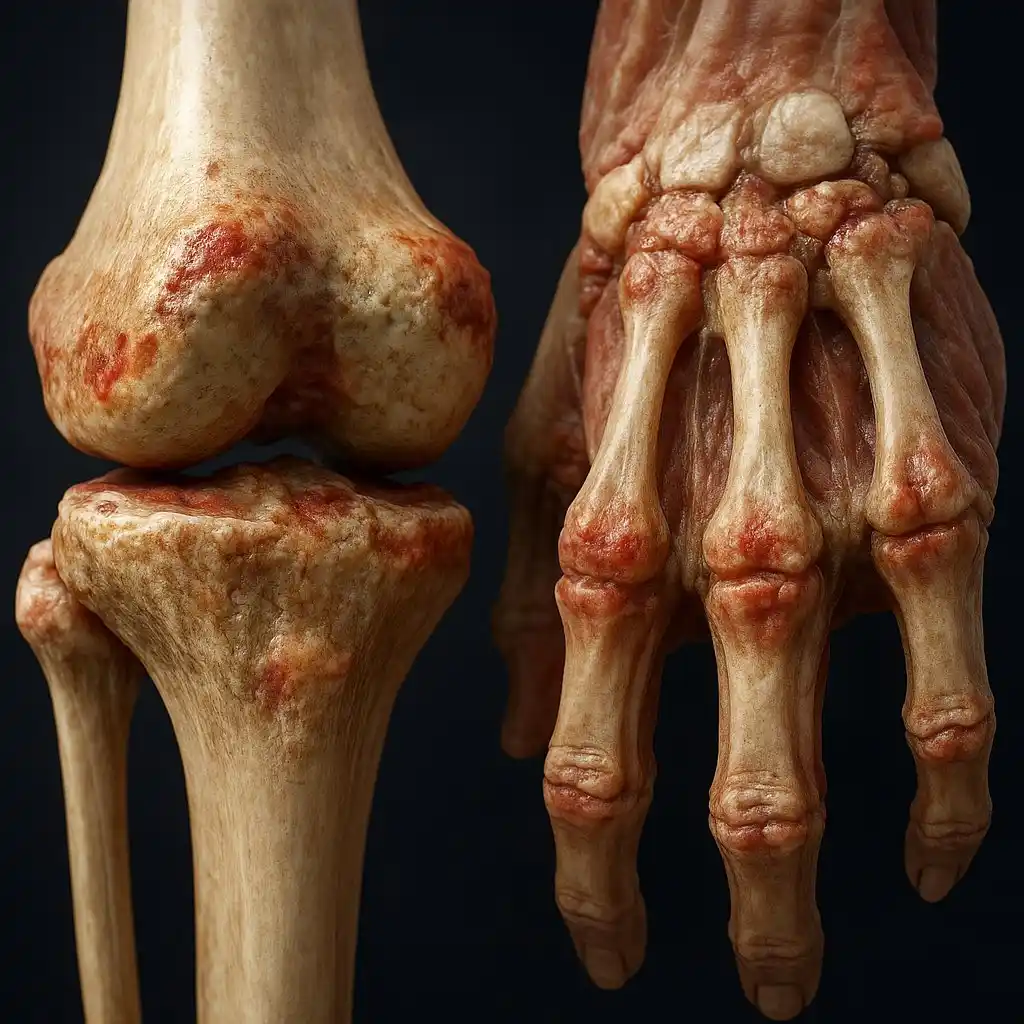
GROUND BREAKING 🎊🔥🎈
June 7, 2025 at 03:39 PM
*MANAGING ARTHRITIS*
My daughter, can NSAIDs cure this pain?
No dad, they only help in management.
This was a real conversation
And it reflects what many of our parents face daily.
Arthritis is a chronic condition that can become a lifelong companion if not managed properly.
*WHAT IS ARTHRITIS?*
Arthritis simply means inflammation of the joints. But it is not a single disease.
It’s an umbrella term for over 100 different joint related conditions.
How do they present?
They present with pain, swelling, stiffness and reduced mobility in affected joints
*MOST COMMON TYPES*
5 most common types of arthritis include:
*- Osteoarthritis*
Osteoarthritis is caused by wear and tear of the cartilage that cushions the joints.
It is often seen in older adults and affects the knees, hips and hands.
*- Rheumatoid arthritis (RA)*
RA is an autoimmune condition where the body attacks the lining of it’s own joints.
It can affect people as young as 30-40, mostly seen in women and inflammation is the key problem here.
*- Gout*
Also called “disease of kings”, gout is caused by the buildup of uric acid crystals in the joints.
It is due to a high purine diet, alcohol and poor kidney function.
*- Psoriatic arthritis*
This occurs in people with psoriasis, which is an autoimmune skin condition.
It can cause sausage-like swelling in fingers and toes.
*- Ankylosing spondylitis*
This is also an autoimmune disease that affects the spine, especially the lower back.
It is mostly seen in men, and can start as young as 40
*WHAT INCREASES RISK OF ARTHRITIS*
Many factors contribute to arthritis, and they include:
- Genetics: A family history increases your chances
- Aging: Wear and tear of the joints over time
- Gender: Rheumatoid arthritis is mostly seen in women, and gout is mostly seen in men
- Joint injuries: Previous injuries from sports or accidents
- Obesity
- Poor diet and a sedentary lifestyle
- Smoking and alcohol use
- Autoimmune conditions like lupus
- Hormonal changes during menopause
*SYMPTOMS TO WATCH OUT FOR*
- Morning joint stiffness that lasts more than 30minutes
- Swollen, tender or warm joints
- Difficulty moving a joint
- Tiredness or low grade fever
- Sudden severe pain in one joint
*WHAT SHOULD YOU DO?*
- See a doctor early and don’t self medicate
- Request blood tests to check for rheumatoid arthritis and uric acid levels
- Carry out an X-ray or MRI scan to assess joint damage
- Track your symptoms, when it hurts and activities that trigger it
*COMPREHENSIVE MANAGEMENT STRATEGIES*
The goal is to preserve joint function and maintain quality of life.
*1. Exercise*
Engage in low impact movements like walking, swimming and yoga.
They improve joint mobility and strengthens supporting muscles.
*2. Eat an anti inflammatory diet*
Focus on:
- Fruits and vegetables (Leafy vegetables and berries)
- Omega 3 fatty acids
- Nuts, turmeric, ginger and olive oil.
*3. Maintain a healthy weight*
Even a 5kg weight loss can significantly reduce knee pain in osteoarthritis.
*4. Medications*
Medications help a lot with arthritic pain, however they should be used responsibly and under the supervision of a doctor.
Wondering what medication is right for you? Please visit a hospital today.
5. Hot and cold therapy
Use hot pads or baths to relieve stiffness, and use ice packs to reduce inflammation and swelling.
*6. Mental and emotional support*
Arthritis can be draining. Try to join or get your parents to join a support group or consider therapy if depression sets in.
*SUPPLEMENTS AND HERBS THAT HELP*
- Turmeric: Curcumin present in turmeric helps block inflammatory pathways, and is comparable with ibuprofen in mild OA.
For better results, combine with black pepper.
- Omega-3 fatty acids: Reduces joint inflammation especially in rheumatoid arthritis.
- Glucosamine and Chondroitin: Supports regeneration of cartilage and may slow progression.
Others include:
- Calcium and magnesium
- Vitamin D
- Collagen type 2
- Boswellia Serrata (Indian frankincense)
- Methylsulfonylmethane
- Willow bark extract
Supplements support but they do not replace lifestyle changes and treatment.
Always discuss with your pharmacist or doctor before incorporating any of them.
*CAN ARTHRITIS BE CURED*
No, arthritis cannot be cured. It can only be managed.
However, patients can live pain free and have a good quality of life with proper management.
- Identify symptoms on time
- Speak to a doctor
- Modify your lifestyle
- Stay adherent to medications.
